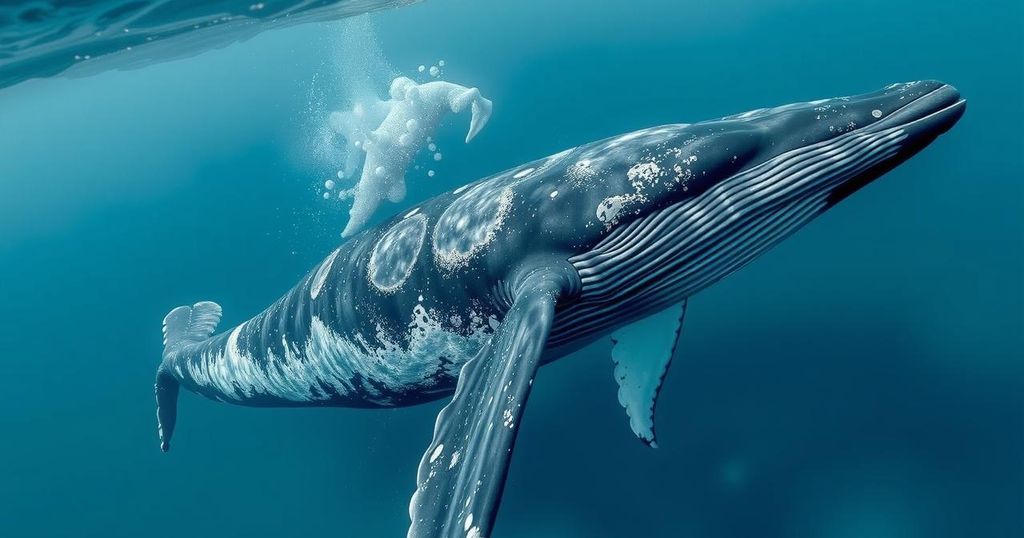A humpback whale has completed a remarkable migration of over 13,000 kilometers from Colombia to Tanzania, possibly due to climate change influencing food availability. This unprecedented journey has been documented through citizen science, revealing the adaptability of marine mammals in response to environmental changes.
A remarkable humpback whale has performed an unprecedented migration, traveling from the summer breeding grounds off the coast of Colombia to Zanzibar, Tanzania, covering a distance of at least 13,000 kilometers. This journey is believed to be influenced by climate change, which may be affecting the availability of food resources like krill. The whale was first identified by the organization Happywhale in 2013, again in 2017, and then in 2022, with its distinctive fluke pattern confirming its identity across these sightings.
This whale’s epic migration showcases the extreme lengths that these majestic creatures may go to in search of mating opportunities or new feeding grounds. Humpback whales are known for their long-distance migrations between breeding and feeding areas, but this particular male’s journey, involving two disparate breeding locations, stands out as one of the most extraordinary. Scientists speculate that changes in environmental conditions may necessitate such drastic wanderings.
The research, utilizing a comprehensive database of whale photographs submitted by various parties, leverages artificial intelligence to track and analyze the migratory patterns of humpback whales worldwide. Published in the journal Royal Society Open Science, the findings underscore the adaptability and resilience of these marine mammals in the face of environmental shifts. Although the exact motivations for this migration remain unclear, the study emphasizes the possible implications of climate change on marine wildlife.
Humpback whales are renowned for their extensive migratory patterns, typically traveling between warmer breeding grounds and cooler feeding regions. Their migrations are essential for reproduction and survival. The recent phenomenon of a humpback whale traveling over 13,000 kilometers illustrates not only the physical capabilities of these creatures but also raises questions about the impacts of climate change on their feeding and breeding behaviors. Changes in oceanic temperatures and food availability due to global warming may prompt such extraordinary migrations, highlighting the broader environmental challenges faced by marine ecosystems. The documentation of these journeys through citizen science platforms has significantly enhanced our understanding of whale movements and behaviors.
The extraordinary migration of the humpback whale from Colombia to Tanzania marks a significant milestone in our understanding of marine mammal behaviors in the context of changing environmental conditions. This event highlights the adaptability of humpback whales and possibly signifies the broader impact of climate change on food sources and breeding grounds. Continued research and monitoring will be essential to further understand these dynamics and to ensure the preservation of these remarkable species in an era of rapidly changing oceanic environments.
Original Source: www.thecitizen.co.tz






